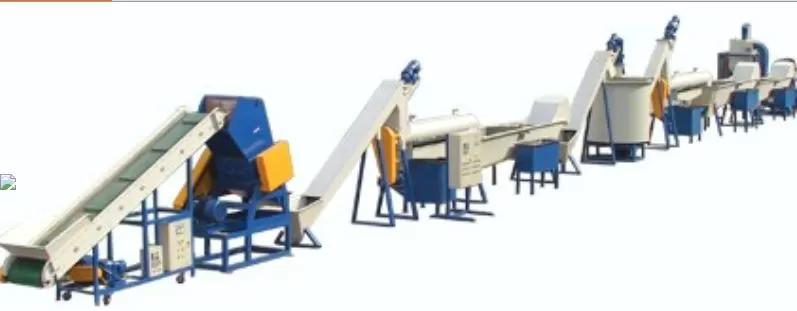Plastic waste is a global challenge, and Hungary is no exception. In recent years, Hungary has made significant strides in developing and implementing advanced plastic recycling technologies. However, what exactly are these technologies, and how effective are they?

Hungary’s plastic recycling technologies include mechanical recycling, chemical recycling, and innovative sorting systems. These technologies have significantly improved the country’s recycling rates and environmental footprint.
Let’s delve deeper into Hungary’s plastic recycling technologies and see how they contribute to a sustainable future.
What is Mechanical Recycling?
Mechanical recycling is one of the most common methods used in Hungary. It involves collecting, sorting, and processing plastic waste into reusable materials. The process is straightforward and cost-effective, making it a popular choice.
How Does Mechanical Recycling Work?
In mechanical recycling, plastic waste is collected from households, businesses, and industries. The collected plastics are then sorted by type and color. This sorting can be done manually or using automated systems. After sorting, the plastics are cleaned to remove any contaminants.
Once cleaned, the plastics are shredded into small pieces. These pieces are then melted and reformed into pellets or new plastic products. This method is efficient and can be repeated multiple times without significantly degrading the quality of the plastic.
Benefits of Mechanical Recycling
Mechanical recycling is highly beneficial because it reduces the need for virgin plastic production, conserves natural resources, and decreases greenhouse gas emissions. Additionally, it provides economic opportunities in the recycling industry.
What is Chemical Recycling?
Chemical recycling is another advanced technology used in Hungary. Unlike mechanical recycling, which physically processes plastics, chemical recycling breaks down plastics into their original chemical components.
How Does Chemical Recycling Work?
Chemical recycling involves several processes, including pyrolysis, gasification, and depolymerization. In pyrolysis, plastic waste is heated in the absence of oxygen, breaking it down into oil and gas. These byproducts can then be refined into new plastics or used as fuels.
Gasification involves heating plastic waste with a controlled amount of oxygen, converting it into syngas. This syngas can be used to produce energy or new chemicals. Depolymerization breaks down plastics into their monomers, which can be purified and polymerized again to produce new plastics.
Advantages of Chemical Recycling
Chemical recycling is advantageous because it can handle mixed and contaminated plastics that are difficult to recycle mechanically. It also produces high-quality raw materials that can replace virgin plastics, further reducing environmental impact.
What Innovative Sorting Systems are Used?
Efficient sorting is crucial for effective recycling. Hungary has adopted innovative sorting systems to improve the efficiency and accuracy of the recycling process.
Optical Sorting Technology
One such innovation is optical sorting technology. This technology uses sensors and cameras to identify and separate different types of plastics based on their color and resin type. The sorted plastics are then directed into appropriate recycling streams.
AI and Robotics
AI and robotics are also being integrated into sorting systems. AI algorithms can analyze waste streams and make real-time decisions to sort plastics more accurately. Robots equipped with AI can handle complex sorting tasks quickly and efficiently.
What is the Role of Public Participation in Recycling?
Public participation plays a vital role in the success of recycling programs. Hungary has implemented several initiatives to encourage public involvement in recycling efforts.
Recycling Education Programs
The government and non-governmental organizations run recycling education programs to inform citizens about the importance of recycling and how to do it correctly. These programs include school curriculums, public workshops, and media campaigns.
Incentive Programs
Incentive programs are also used to motivate people to recycle. These programs offer rewards such as discounts, vouchers, or cash for recycling plastic waste. This approach has proven effective in increasing recycling rates and reducing plastic pollution.
What are the Challenges Facing Hungary’s Recycling Efforts?
Despite the advancements, Hungary faces several challenges in its recycling efforts. These challenges include contamination of recyclables, lack of infrastructure, and fluctuating market demand for recycled materials.
Contamination Issues
Contamination of recyclable materials is a significant problem. When non-recyclable materials are mixed with recyclables, it complicates the recycling process and reduces the quality of the recycled products. Educating the public on proper recycling practices is crucial to address this issue.
Infrastructure and Market Demand
The recycling infrastructure needs continuous investment and improvement to handle increasing amounts of plastic waste. Additionally, market demand for recycled materials can fluctuate, affecting the economic viability of recycling programs. Developing stable markets for recycled products is essential for sustaining recycling efforts.
How Can Other Countries Learn from Hungary?
Hungary’s approach to plastic recycling offers valuable lessons for other countries. By adopting similar technologies and strategies, nations can enhance their recycling capabilities and reduce plastic pollution.
Embracing Advanced Technologies
Investing in advanced recycling technologies like chemical recycling and AI-powered sorting systems can significantly improve recycling efficiency. Countries should explore these technologies to handle complex plastic waste streams effectively.
Promoting Public Participation
Engaging the public through education and incentive programs is key to successful recycling. Governments should implement initiatives to raise awareness and encourage recycling practices among citizens.
Conclusion
Hungary’s plastic recycling technologies demonstrate a comprehensive approach to tackling plastic waste. Through mechanical and chemical recycling, innovative sorting systems, and public participation, Hungary has made significant progress in recycling efforts. Other countries can learn from Hungary’s example to enhance their recycling strategies and contribute to a sustainable future.
